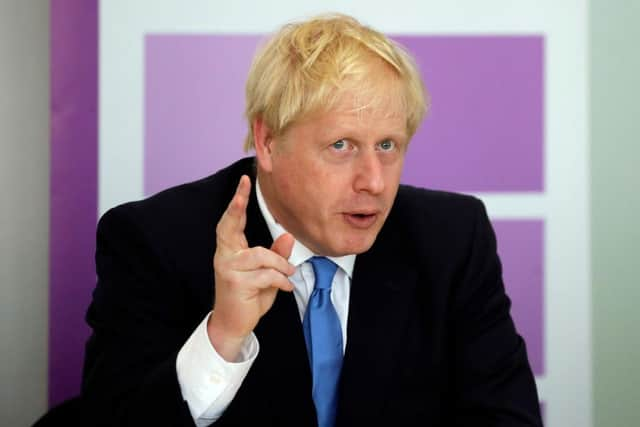Civil service cuts will be deeper than under George Osborne’s austerity, warns TUC
and live on Freeview channel 276
No 10 wrote to civil servants last week announcing its intention to eliminate the positions of 20 per cent of the service within three years.
The leaked letter claimed that dealing with the “aftershocks of the pandemic” required “no longer requiring the State to have the same colossal presence in people’s live”.
Advertisement
Hide AdAdvertisement
Hide Ad

But analysis by the Trade Union Congress (TUC) says that, after the cuts, the number of civil servants for every 10,000 UK citizens would fall from 70 to 56.
This would be deeper than the 59 per 100,000 citizens left after the low recorded after former chancellor George Osborne’s austerity drive following the 2010 election.
One outcome of these cuts was loss of staff responsible for emergency planning and public health, which, the TUC says, left the UK ill prepared to respond to the Covid-19 pandemic.
It warns the extensive axing of civil servants would leave the country “unable” to handle the workload of Brexit.
Advertisement
Hide AdAdvertisement
Hide AdTUC General Secretary Frances O’Grady said: “They said we would build back better. But the Conservative government has changed its tune. Now it’s cut back harder – with cuts that go even deeper than George Osborne’s.
“It’s like Russian roulette. We don’t know which central government services will take the hit. But if these damaging plans don’t change, we know there will be harm to families and businesses that depend on services.
“Osborne’s cuts made the nation less resilient when we were hit by the pandemic, because he scrapped staff responsible for emergency planning and public health. The price was too high. We cannot make the same mistake again.”
The TUC warns that there are no easy places to make cuts without consequences that will harm UK families and businesses, and that some services may have to be stopped altogether.
Advertisement
Hide AdAdvertisement
Hide AdThere could be less resilience if a future pandemic takes place and less security against attacks on our allies or cyber-attacks on the UK by hostile countries like Russia.
There could be less safety for UK families from fraud and crime, unsafe public places and workplaces, and dangerous ingredients or hygiene standards in food production and services.
And there could be backlogs and delays to essential support like disability benefits and universal credit, or the issuing of vital documents like passports, driving licences and work visas.
FDA Assistant General Secretary Steven Littlewood: “We are still dealing with the consequences of the cuts leading up to 2016 in areas like the justice system, where there remains a historically large backlog of cases. It’s clear from the TUC’s research that in terms of providing services to the population, the government proposals actual go beyond where we were in 2016 and will lead to the lowest number of civil servants per head since World War Two.
Advertisement
Hide AdAdvertisement
Hide Ad“Given the new responsibilities the government has post-Brexit for areas like borders, customs and agriculture it is impossible to see how it can provide the services it currently is with the proposed job losses. The government needs to be honest about what services it would cut if it reduces numbers.”

